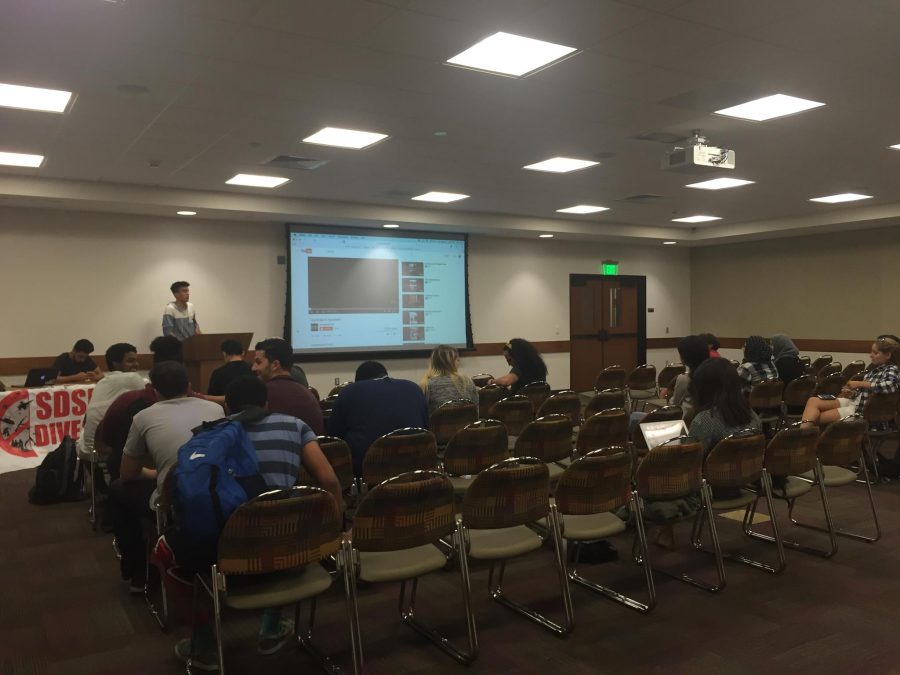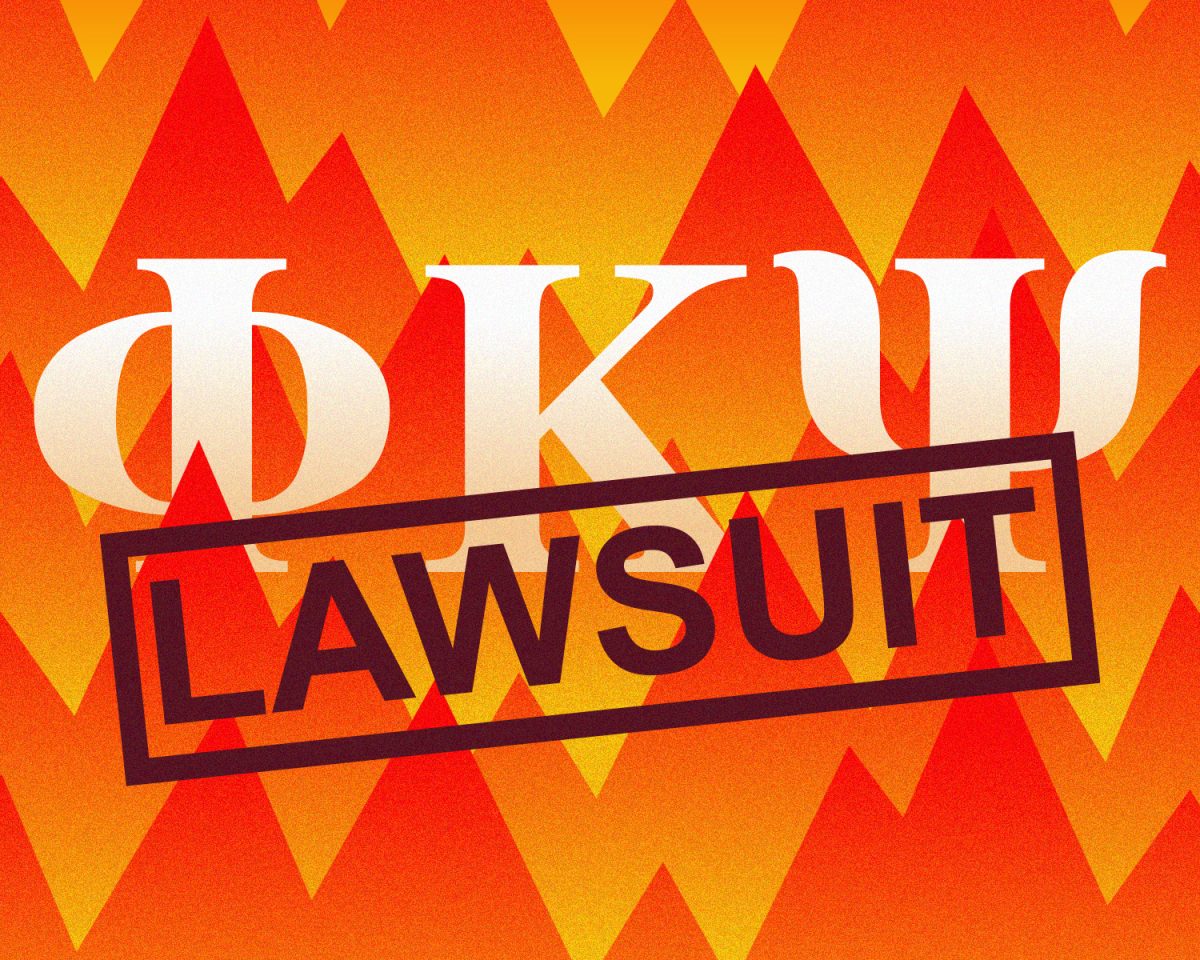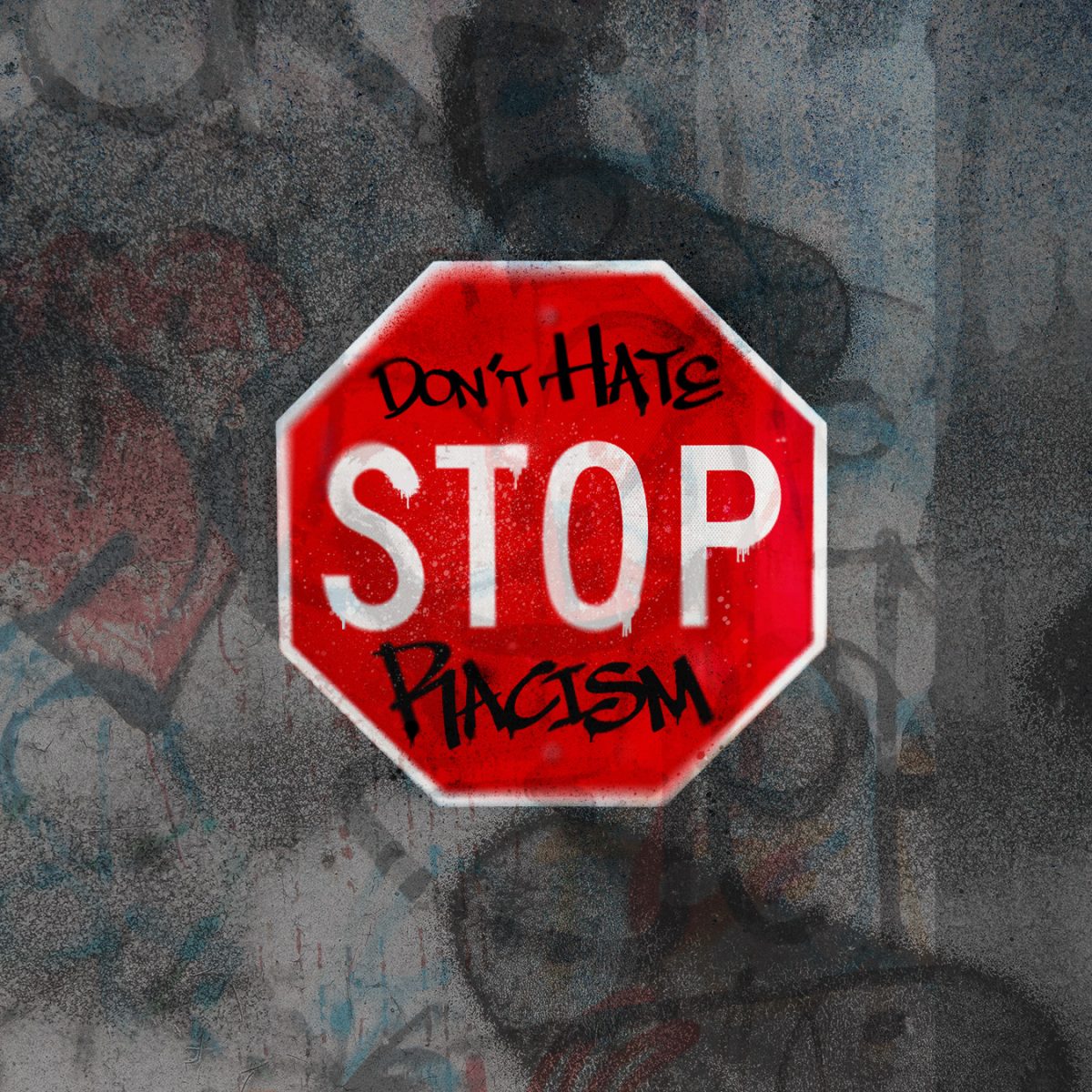On Thursday, Sept. 29, Students for Justice in Palestine held a film screening of “Roadmap to Apartheid,” a documentary on the oppression of Palestinians in Israel.
Originally, Miko Peled, 54, an anti-Zionist Israeli activist, was scheduled to speak at the event. However, there was some controversy surrounding his presence on SDSU’s campus.
On Twitter, Peled had referred to Jews as “sleazy thieves,” compared Israel to Nazi Germany, and seemingly advocated for rocket attacks on Israel.
Then theyr surprised Jews have reputation 4being sleazy thieves. #apartheidisrael doesn’t need or deserve these $$ https://t.co/5DGjBmTDMN
— Miko Peled (@mikopeled) September 14, 2016
The most racist airport in the world. Time to stop their gestapo practices. https://t.co/4GZY8MWD22
— Miko Peled (@mikopeled) September 19, 2016
Israel doesn’t like rockets: free #Palestine https://t.co/rYqGw3sj99
— Miko Peled (@mikopeled) August 21, 2016
Several students expressed concern over having Peled on campus. Staff columnist Anthony Berteaux wrote an opinion piece for The Daily Aztec on Peled’s visit, titled “Campus activists silent in the face of anti-Semitic author.” The piece was published on Sept. 23.
On Sept. 26, SJP posted on its Facebook page the decision to change the event from Peled speaking to “Roadmap to Apartheid.”
“Our scheduled speaker, Miko Peled, had made offensive remarks on Twitter,” the post read. “After consulting with many Jewish and non-Jewish allies, they made it clear that the tweets were offensive. Although we believe that these comments are not reflective of Mr. Peled’s principles nor character, continuing to host the event without a resolution of this issue would not be appropriate.”
They also made a point to distinguish between anti-Semitism and anti-Zionism.
“ … we believe all too often anti-Zionism is conflated with anti-Semitism, which diminishes the true, negative impact of the latter. SJP SDSU will continue to host individuals who stand up for for Palestinian human rights and who are critical of the oppressive, apartheid State of Israel and its policies.”
Peled, who is the author of “The General’s Son: Journey of an Israeli in Palestine,” said he is not upset with the student organization or their decision to cancel.
“They decided this was going to take away from the event because of all this nonsense going on,” he said. “So they decided to not do it this time, but maybe do it later.”
Of the September 14 tweet referring to Jews as sleazy thieves, he said he was simply commenting on how it seemed Israel was feeding into perpetuated stereotypes of Jewish people, not that he believed the stereotype was true. The tweet was in response to the 10-year, $38 billion Memorandum of Understanding for the U.S. to aid in Israeli security support.
He emphasized he still had a great deal of respect for SJP chapters, including the chapter at SDSU.
“SJP, to be honest with you, has done more to promote understanding for the issue of Palestine in this country than any other organization,” he said. “It’s students on campuses, they do their own thing, they fight a really tough battle. They are fighting for lives every day and I have an enormous amount of respect for SJP all across the country and in Canada and other places.”
The event on Thursday took place in the Conrad Prebys Aztec Student Union. “Roadmap to Apartheid” is a documentary which examines the rise and fall of apartheid in South Africa and draws parallels to why some Palestinians feel they live in an apartheid system today.
There were many topics covered, among them the demolition of Palestinians’ homes, issues with roadblock checkpoints that have resulted in medical problems and death and the siege on the Gaza Strip.
It ended with the view that it is possible for Israelis and Palestinians to come together in a way similar to the ending of apartheid in South Africa.







